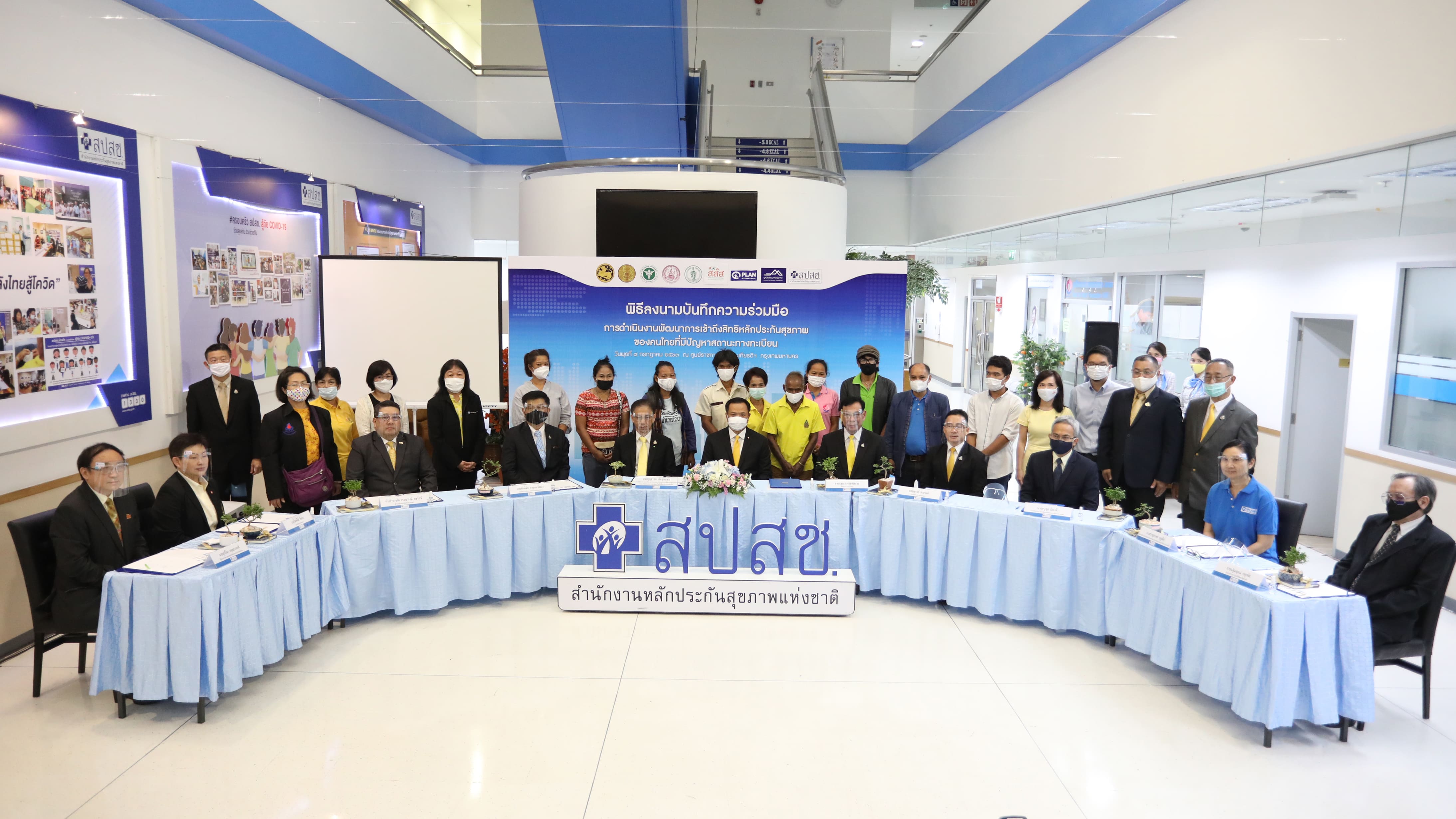
- Home
- DescriptionNews
Healthcare rights of stateless people
 More than 520,000 stateless people are living in Thailand with no access to the government's healthcare schemes.
More than 520,000 stateless people are living in Thailand with no access to the government's healthcare schemes. National Health Security Office (NHSO) 's data shows that most of the stateless population were born on Thai soil. But their parents did not register their birth with Thai authorities, or they may lose identity documents that result in their failure to obtain Thai citizenship.
According to Thai law, only Thai citizens can benefit the government's universal healthcare coverage comprising of three healthcare schemes---Universal Coverage Scheme, Social Security Scheme, and Civil Servant Medical Benefits Scheme.
Therefore, stateless people must pay medical fees from their own pockets. If they want to benefit Thai healthcare schemes, they need to request for Thai citizenship, which must go through years of the nationality verification process.
The tragedy of being an undocumented person, despite a child of Thai residents, is told by a story of Ice Waseng, a 66-year-old woman whose parents did not register her birth at a younger age.
Her daughter, Wilai Saetan, spent more than five years to collect documents and apply Thai citizenship for her. Thai authorities eventually provided her a Thai identity card in 2017.
But her health condition had been deteriorated by stroke and cholecystitis. She died one year after her success in obtaining Thai citizenship.
"The procedure for requesting a Thai identity card was tedious and complicated. When my mother was granted Thai citizenship, she could access free healthcare services under the Universal Coverage Scheme. But it was too late. She was severely ill," said Wilai.
Supreeda Adulyanon, the manager of the Thai Health Promotion Foundation (ThaiHealth), said that his organization had tracked the venerable populations in urban areas and found many were stateless persons with chronic diseases.
Thai government has tried to solve this problem. In 2010, the cabinet approved the Public Health Ministry's launching of "the healthcare for stateless people fund" that would cover medical fees for stateless people.
But it does not promise healthcare rights to them. Some health providers have denied free healthcare services for non-Thai citizens.
On 8 July, Public Health Minister Anutin Charnvirakul led nine governmental and non-governmental organizations to sign a Memorandum of Understanding (MoU) in an attempt to deliver free healthcare services to stateless people.
"Though universal healthcare coverage is available in Thailand, there are many Thai people without identity cards who can't benefit from the government's healthcare schemes," he said.
"We expect that our collaboration will progress an establishment of healthcare rights for everyone born in Thailand. We must close the health equity gap."
The organizations signed the MoU include Interiors Ministry, Justice Ministry, Public Health Ministry, Social Development and Human Security Ministry, Bangkok Metropolitan Administrator, ThaiHealth, Pan International Thailand, Human Settlement Foundation and the NHSO.
They will work together on speeding up the national verification process and providing assistance to stateless people.

